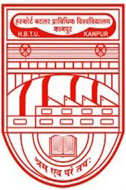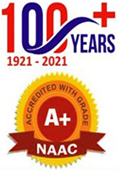Sustainability
- No poverty
- Zero hunger
- Good health and well-being
- Quality Education
- Gender equality
- Clean water and sanitation
- Affordable and clean energy
- Decent work and economic growth
- Industry, innovation and infrastructure
- Reduced inequalities
- Sustainable cities and economies
- Responsible consumption and production
- Climate action
- Life below water
- Life on land
- Peace, justice and strong institutions
- Partnership for the goals
- Office order for SDG Nodal Officer
- Internal Complaint Committee
- Student Councellor (Dr. Arti Pandey)
- SC/ST Cell
- Committee regarding Economically Weaker Section Fund
- Research Ethics Committee (Animal, Chemical, Bio-Ethics etc.)
- Cell for students from J&K for higher studies
- Caste Based Discrimination Redressal Cell
- Minority Grievance Redressal Cell
- Grievance Redressal Committee for Faculty/Officers/Staffs
- Eat Right Campus
- Committee regarding Student Grievance Redressal Cell
- Student Secretary/Co-ordinator of Sub-Councils of USAC for Session 2023-24
- Student Secretary/Co-ordinator of various Sub-Council of USAC 2024-25
- Female/Male Counselor for students
Sustainable Literacy Questionnaire
Sustainability Literacy Assessment
Introduction:
Harcourt Butler Technical University, Kanpur, aims to foster a culture of sustainability within its campus and broader community. The following report presents an analysis of the responses gathered from a sustainability level awareness quiz carried out to judge the awareness level of faculty, staff and students. questionnaire administered to members of the university.
Methodology:
A questionnaire based quiz comprising of 15 MCQs related to sustainability, SDGs and India’s commitment to sustainability was prepared. The same was prepared using a google form and was circulated to all stakeholders namely, faculty members, staff and students. These questionnaire were related to sustainability, SDGs, environmental, social, economic, waste management, transportation and resource conservation. Respondents were asked to tick the most appropriate answers.
Key Findings:
1. Environmental Sustainability:
Majority of respondents demonstrated moderate to high awareness of their environmental impact on campus (Average rating: 09 to 14). Awareness of energy-saving features in campus buildings is reasonably satisfactory the respondents.
2. SDGs:
Results revealed that awareness about the SDGs is low to average. Thus, it is opined that efforts be made to conduct an awareness programme on SDGs.
3. Administrative machinery in India responsible for ensuring compliance of SDG and sustainability:
Majority of respondents demonstrated moderate to high awareness about the administrative machinery responsible for ensuring compliance of SDGs. Most respondents were aware of the concerned Union ministry, boards responsible for the same. The average ratings of respondents on this aspect of the quiz was around 09-12.
A majority of respondents believe that the university effectively manages its financial resources to support sustainability initiatives. Limited awareness exists regarding scholarship or financial aid programs for students pursuing sustainability-related studies. There is a strong consensus among respondents on the importance of investing in sustainable infrastructure and practices.
4. HBTU’s initiatives on sustainability:
Majority of respondents demonstrated high awareness about the various initiatives taken up by HBTU, Kanpur such as water conservation, energy conservation, pollution etc. The average ratings of respondents on this aspect of the quiz was around 12-14.
A substantial number of respondents utilize recycling bins provided on campus. Awareness of composting facilities on campus is relatively low among respondents. Efforts to minimize waste in daily activities on campus vary among respondents.
5. Education and Awareness:
Attendance at sustainability-related workshops or seminars organized by the university is moderate among respondents. A majority of respondents believe that sustainability should be incorporated into the curriculum across various disciplines. Overall, respondents feel more knowledgeable about sustainability issues compared to when they first enrolled at the university. The average ratings of respondents on this aspect of the quiz was around 10-12.
6. Resource Conservation:
Awareness of initiatives aimed at reducing water consumption on campus is limited among respondents. Efforts to use digital resources instead of printing materials are moderate among respondents. Satisfaction with the availability of sustainable food options on campus varies among respondents. The average ratings of respondents on this aspect of the quiz was around 11-14.

